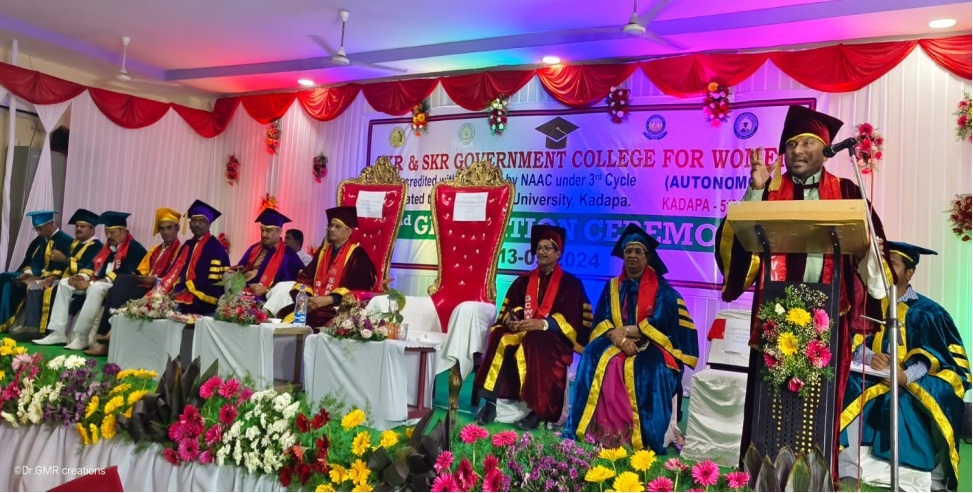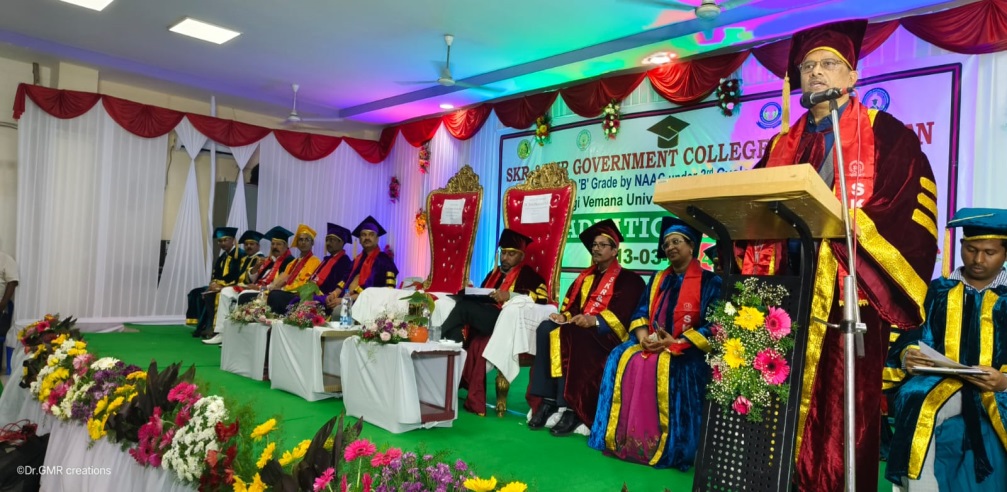LINGUISTICS AND LITERATURE - ENGLISH - Publications, Patents& Awards
Skill Will Club
2019-2020
I. The Context:
Skill acquisition is the ability to the trained on a particular task or functions and become expert in it. To achieve the needs of present job market skill education is essential for graduate students / youth. So skill based education should be part of any teaching programme. Skill acquisition makes the students employable besides the obtaining of the degrees. For this purpose, initiative has been taken up and the curriculum also designed with the actual requirements of the job-market in mind and to create will among students for competing the job-market, equipped with the necessary soft-skills.
II. Objectives:
The programme aims to import soft-skills including communication skills, presentation skills. Personality Skills and Job-Skills help students to acquire General English Skills and help to remove mental blocks involved in communication. The skill will club aims to train students in soft-skills to empower them to compete in the job-market. Soft skills contribute to increasing the students’ performance and productivity at the workplace with excellent time management and communication skills. It helps the students to build a good relationship in one’s personal life and professional life.
III. The Practice:
The practice involves a group of teachers to voluntarily conduct classes and provide training to students. Teachers from the Department of English have designed the programme, and the programme will be held with the help of teachers from all faculties. Teachers put special efforts without remuneration besides the regular work. No fee is collected from the students for the purpose. The club identifies a large group of 30 students through simple test orientation programme conducted for the students to know the importance of the skill acquisition.
· Theory classes Time: 25-30 hrs.
· Students are equipped with the audio0 system, audio cassettes, cd’s and the course books, Cambridge series books for better understanding of pronunciation and to build conversational skills
IV. A. English speaking practice:
Ø Audio versions of conversation.
Ø Phonetic pronunciation of vowels and consonant sounds.
Ø Listening tracks of 1 minute to learn the pronunciation and to find out the concept.
B. Reading Practice: Text reading, news paper reading, reading aloud, poem recitation.
C. Writing:
Ø Writing conversation for an imaginary context.
Ø Letter writing practice
Ø Report writing
D. Group Discussion:
Ø Involving teachers for practice and giving tips to the students for moderation in Group Discussion.
Ø Playing video presentation of group discussion
Ø Critical commentary and tips on GDs’.
E. Job Skills:
Ø Giving instructions on Mock Interviews and conducting interviews.
Ø Theory classes on interpersonal skills
Ø Resume preparation
Ø Practice on telephone etiquette
V A. Obstacles faced and strategies adopted.
· Students found difficulty at initial stage to allocate their free time for this course.
· Lack of exposure on phonetics in early academics.
· Internet connectivity problems.
B. Strategies:
· Oral practice of vowel and consonant sounds.
· Sharing audio and video versions to students’ android phones to self learning at the time of network connectivity problem.
· Engaging bring students to monitor the club activities.
VI. Impact of the practice:
The impact of the programme is very good students developed self-confidence to overcome the stage fear to present and to give presentation, seminar, self introduction etc., A large number of students intend to join the programme and want to get the benefit of this voluntary initiative from the teachers.
VII. Resources Required:
ü Cambridge series books
ü Audio-visual equipment
ü Suitable furniture for GDs, Mock interviews
Syllabus
I. LISTENING SKILLS
A. Importance of listening
B. Types of listening
C. Barriers to listening
D. Effective listening
II.SPEAKING SKILLS
A. Sounds of English Introduction
B. Theoritical concepts
C. Word accent
D. Intonation
III.READING SKILLS
A. Skimming
B. Scanning
C. Intensive reading
D. Extensive reading
IV.WRITING SKILLS
A. Punctuation
B. Spelling
C. Paragraph writing
D. Letter writing
V. SOFT SKILLS
A. Swoc analysis
B. Interpersonal skills
C. Group discussions
D. Debates
E. Interview skills
ATTENDANCE
|
S.NO |
NAME OF THE STUDENT |
GROUP |
ATTENDANCE |
|
1 |
B.VASANTHI |
III B.A HEP |
20/30 |
|
2 |
G.ANUSHA |
III B.A HEP |
21/30 |
|
3 |
K.KOUSALYA |
III B.A HEP |
21/30 |
|
4 |
K.VIROJA |
III B.A HEP |
23/30 |
|
5 |
N.NAGESHWARI |
III B.A HEP |
24/30 |
|
6 |
S.AFROZ BEGUM |
III B.A HEP |
22/30 |
|
7 |
S. AYESHA FATHIMA |
III B.A HEP |
27/30 |
|
8 |
K.PADMAVATHI |
III BCOM TM |
22/30 |
|
9 |
S.RASHIDA |
IIIBCOM TM |
23/30 |
|
10 |
A MOUNIKA |
IIIBCOM GEN |
25/30 |
|
11 |
A RAAJESWARI |
III BCOM GEN |
23/30 |
|
12 |
C SNEHA |
III BCOM GEN |
18/30 |
|
13 |
M SIREESHA |
III BCOM GEN |
21/30 |
|
14 |
P CHANDRAMANI |
III BCOM GEN |
24/30 |
|
15 |
SYED KOUSAR |
III BCOM GEN |
22/30 |
|
16 |
S. AMEENA |
III BCOM CA |
20/30 |
|
17 |
S.ARSHIYA TABASSUM |
III BCOM CA |
22/30 |
|
18 |
A.SREEVANI |
III BCOM CA |
21/30 |
|
19 |
B.LAKSHMI DEVI |
III BCOM CA |
23/30 |
|
20 |
G.HEMALATHA |
III BCOM CA |
27/30 |
|
21 |
D.SAMREEN KHANAM |
III MPC E.M |
28/30 |
|
22 |
A.SHALNI |
III MPC E.M |
22/30 |
|
23 |
G.SUSMITHA |
III MPC E.M |
29/30 |
|
24 |
P.SWATHI |
III MPC E.M |
25/30 |
|
25 |
B.HASEENA |
III BZC T.M |
26/30 |
|
26 |
G.RAMULAMMA |
III BZC T.M |
22/30 |
|
27 |
C.KASTHURI |
III BZC E.M |
21/30 |
|
28 |
D.SUBHAGYA |
III BZC E.M |
25/30 |
|
29 |
S.SALEEMA |
III BZC E.M |
26/30 |
|
30 |
S.ASMA |
III BZC E.M |
22/30 |

















